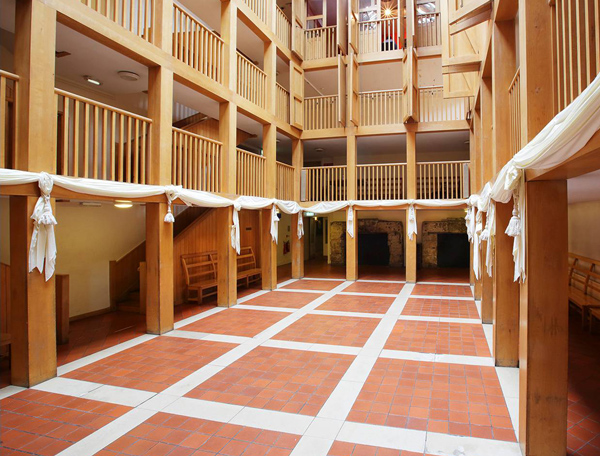
Dublin University Gender Equality Society (DUGES), DU Meditation and Trinity Environmental Society hosted a self-care workshop in the Atrium yesterday evening, in collaboration with Trinity College Dublin Students’ Union (TCDSU). As a raucous party took place down below, we all huddled in a circle to give ourselves some much needed downtime.
In the midst of essay deadlines and lab report fiascos, this event was the perfect way to take a step back and re-evaluate life. It was rightly stated from the outset of the event that, as students attending such a high-achieving university, there is an unspoken pressure to be busy non-stop and make use of every opportunity.
We are all constantly doing something, feeling as though we can never do too much, and yet, however much we do, it never seems to be enough. People brag about being so busy that they didn’t have time to eat that day. I have friends who load task upon task onto themselves in an effort to feel like they are being productive. I am certainly guilty of doing just that myself. But the reality of the matter is that you cannot do 100 things to the best of your ability. If you spread yourself too thin, you can’t properly fulfill any of the jobs you’ve set for yourself.
The first exercise we were asked to do was to name one good thing that had happened to us this week, one bad thing and one self-care activity we had set aside time for. We then drew a pie chart of how we balance work, leisure and self-care in our lives before recalling some positive and negative experiences we’ve had with saying no to over-committing. Those three simple exercises were enlightening in themselves. As was discussed in the feedback afterwards, it is one thing to know that you should make time for leisure, but another to actually avoid the guilt when doing so.
We then moved on to a very practical approach to implementing self-care in our daily lives. Once a check-in mechanism has become a habit, you will be able to catch yourself before you are teetering on the edge of the deep, dark pit of despair. So we all went about making lists of our own warning signs. Those little symptoms of stress that we either haven’t consciously registered or are blatantly ignoring. We made a list of what we need to do everyday in order to avoid a minor breakdown, whether that is showering in the morning, being on time for your first lecture or just always ensuring there is enough cereal for breakfast, we wrote them all down.
The last list was things we would like to do more of. Leisure activities that we now felt we could justify. We wrote all of our lists in our phones or journals so that we would always have them on our person and could therefore schedule some down time before we came to breaking point.
The last section of the evening involved some compassion meditation. This form of meditation is derived from an ancient Buddhist practice called Metta Bhavana, which translates as loving kindness. It attempts to instil feelings of compassion towards friends, strangers and oneself. Having the party downstairs was definitely “the loudest noise ever experienced while trying to meditate”, joked Czara Casey from DU Meditation society and the TCDSU Welfare Committee. Although, it was somehow more calming, knowing the world was going on all around us and that we didn’t have to take part. We could just sit in that room, palms resting on knees and eyes closed, until we felt ready to rejoin reality again.
The opening address from DUGES highlighted self-care as “a feminist principle” and one that is especially pertinent for women who take on caring roles for others in their lives. However, one workshop participant in the post-discussion noted how men also feel that they can’t express their emotions: “It’s not an unspoken rule, you’re actually told, ‘no stop’ if you bring it up.” Mental health does not and should never be considered to apply to one group of people more than any other. It is something that affects people from all walks of life.
I’ve heard people compare how much worse they are than someone else. No two people have the same good experience, let alone a bad one. Mental health is a universal issue. Isolation is not a solution. Sometimes the greatest act of self-care is just to admit you’re not quite alright. As one participant said: “It is always good to get together with people and to speak honestly.”
The event this evening provided that. Everyone was open about their experiences and all three societies led their sections well. The onus is now on all of us to actually implement the various techniques learned, and I would strongly advise all readers to do the same.






